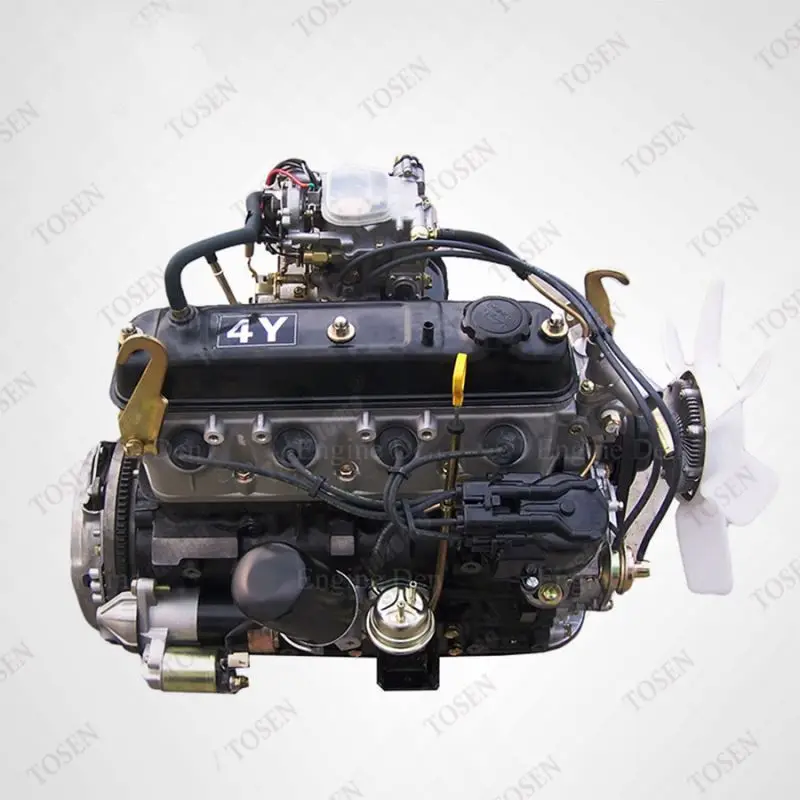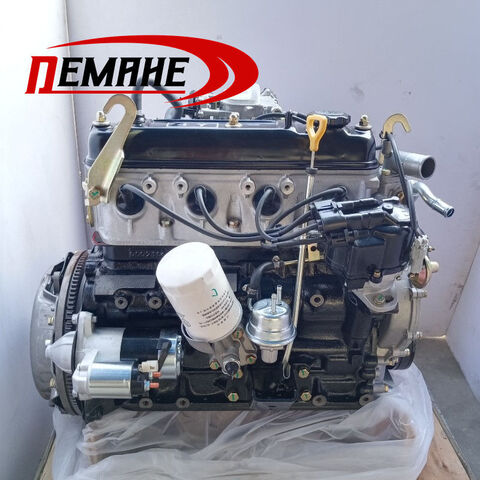Checking Out the Different Sorts Of Engine: Which One Fits Your Demands?
In the pursuit to determine the most suitable engine type for your particular demands, it is vital to review the distinctive characteristics and benefits of each alternative available. Internal combustion engines remain to dominate as a result of their reliability, while electrical engines are obtaining grip for their sustainability. Crossbreed engines supply a functional compromise, and diesel engines stand out for their power in demanding applications. Furthermore, different gas engines present ingenious services, albeit with certain limitations. Understanding your priorities will certainly contribute in this decision-making procedure, causing an exploration of elements that may affect your option.

Inner Combustion Engines
Internal burning engines (ICEs) are the backbone of modern-day transportation, powering a vast selection of cars from vehicles to aircrafts. These engines run on the principle of converting fuel right into mechanical power through a collection of controlled surges within a combustion chamber. One of the most common kinds of ICEs include gas engines, diesel engines, and rotating engines, each designed to satisfy specific efficiency and efficiency requirements.
Fuel engines normally utilize stimulate ignition, while diesel engines rely upon compression ignition, resulting in unique distinctions in fuel effectiveness and power result (4y engine). Rotary engines, or Wankel engines, use a compact style and smooth procedure, but are less generally used in mainstream applications
ICEs have actually undertaken considerable innovations in technology, including the intro of turbocharging and gas injection systems, which improve total performance and performance. In spite of their performance renovations, ICEs face boosting analysis due to their environmental effect, specifically regarding greenhouse gas emissions. As the automobile market advances, the future of ICEs continues to be a topic of argument, balancing performance, effectiveness, and ecological considerations. However, they proceed to play an essential function in worldwide transport framework.
Electric Engines
As concerns concerning ecological sustainability and nonrenewable fuel source reliance grow, electrical engines have actually become a compelling alternative to inner burning engines. These engines use electric motors powered by batteries or gas cells, offering a cleaner and much more efficient motive powers.
Among the primary advantages of electrical engines is their minimized emissions. Unlike traditional engines that melt nonrenewable fuel sources, electric engines generate no tailpipe emissions, significantly decreasing air pollution and adding to boosted public health and wellness. Additionally, the performance of electric motors often goes beyond that of interior burning engines, converting a greater percentage of energy from the source of power into useful energy for activity.
Electric engines are also remarkable for their peaceful procedure, making them suitable for urban settings. 4y engine. The simplicity of their style results in less moving parts, which can lead to minimized upkeep expenses and raised dependability with time
However, obstacles remain, consisting of battery manufacturing impacts, billing infrastructure, and variety constraints. Despite these obstacles, the expanding investment in electric automobile modern technology and renewable resource resources points towards a promising future for electrical engines, positioned to play an essential role in the shift towards sustainable transport.
Hybrid Engines
Mixing the benefits of both traditional and electric inner combustion engines, hybrid engines represent a flexible remedy in the quest for effective and lasting transportation. These engines integrate a gas or diesel motor with an electrical motor, permitting improved fuel effectiveness and minimized exhausts contrasted to conventional vehicles.
Hybrid engines operate in numerous modes, utilizing the electric motor for low-speed driving and the internal combustion engine for higher speeds or when even more power is needed. This dynamic operation not only enhances fuel economy however also adds to a smoother driving experience. Regenerative braking is one more vital function, catching energy normally lost throughout braking and redirecting it to recharge the battery.

As consumers significantly focus on eco-friendliness, hybrid engines stick out as a functional option, offering a reliable balance of efficiency, effectiveness, and environmental duty. This adaptability makes them suitable for city commuting and long-distance traveling alike.
Diesel Engines
Performance and power are trademarks of diesel engines, which have long been favored for their toughness and fuel economic climate. These engines operate the principle of compression ignition, where air is pressed to a high temperature prior to fuel is infused, igniting it without the requirement for spark plugs. This process makes it possible for diesel engines to accomplish higher thermal effectiveness compared to gas engines, converting into far better fuel mileage and reduced carbon dioxide discharges.
Diesel motor are particularly well-suited for durable applications such as trucks, buses, and commercial machinery, where torque and durability are paramount. Their layout generally consists of stronger components to stand up to the greater pressures generated during procedure, causing longer life span and decreased upkeep expenses.

Alternative Gas Engines
While diesel motor have long controlled the landscape of sturdy power resources, alternate fuel engines are gaining grip as feasible choices for a more sustainable future. These engines utilize a selection of fuels, such as compressed gas (CNG), lp, ethanol, and hydrogen, aiming to lower greenhouse gas discharges continue reading this and reliance on nonrenewable fuel sources.
One considerable benefit of alternate fuel engines is their prospective to reduced carbon footprints. CNG engines discharge fewer toxins contrasted to typical diesel engines, making them suitable for city transit systems and fleets looking for to enhance air high quality. Ethanol, stemmed from biomass, not only reduces emissions yet also sustains agricultural economic climates.
Hydrogen fuel cells represent a sophisticated advancement in this realm, supplying zero-emission power through a chain reaction in between hydrogen and oxygen. However, obstacles such as infrastructure advancement and manufacturing prices remain barriers to prevalent adoption - 4y engine.
Verdict
Internal burning engines offer dependability, while electrical engines focus on sustainability and lowered maintenance. Crossbreed engines integrate the advantages of both, boosting performance, whereas diesel engines offer remarkable power and torque for durable applications.
Hybrid engines offer a versatile concession, and diesel engines stand out for their power in demanding applications. The most common kinds of ICEs consist of gasoline engines, diesel engines, and rotary engines, each made to satisfy particular performance and performance needs.
Unlike traditional engines that melt fossil fuels, electric engines generate no tailpipe emissions, significantly decreasing air contamination and contributing to boosted public wellness.Hybrid engines run in a number of modes, making use of the electric motor for low-speed driving and the inner their website combustion engine for higher rates or when more power is required. Hybrid engines incorporate the advantages of both, boosting effectiveness, whereas diesel engines provide premium power and torque for durable applications.